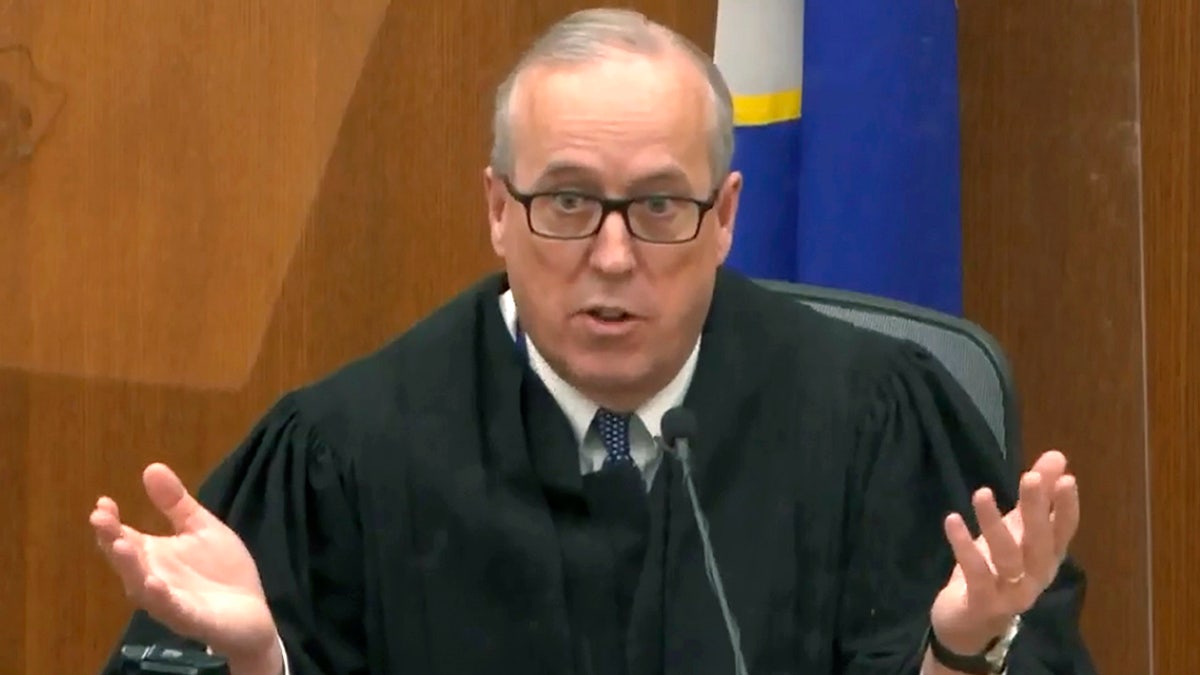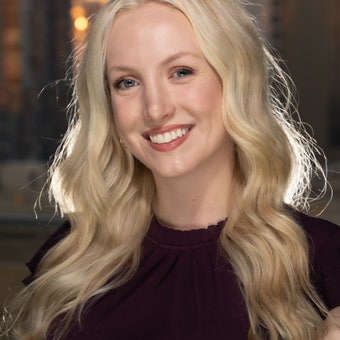Dershowitz: George Floyd officer Derek Chauvin unlikely to get fair trial
Harvard Law professor tells 'The Ingraham Angle' the jury pool is likely frightened to acquit in Minneapolis
Presiding over the murder trial for ex-Minneapolis police officer Derek Chauvin, Hennepin County Judge Peter Cahill is handling what’s viewed by many as a defining moment for law enforcement and race relations in America following the death of George Floyd last May.
After attorneys from both sides concluded closing arguments on Monday, Chauvin’s defense attorney, Eric Nelson, asked Cahill to declare a mistrial, arguing there is a "high probability" jurors were exposed to controversial comments made by Rep. Maxine Waters, D-Calif., in nearby Brooklyn Center, Minnesota.
Waters said on camera to reporters covering the protest on Saturday that, "We've got to stay on the street and we've got to get more active, we've got to get more confrontational. We've got to make sure that they know that we mean business."
DEREK CHAUVIN TRIAL JUDGE SLAMS MAXINE WATERS' INFLAMMATORY COMMENTS
"And now that we have [a] U.S. representative … threatening acts of violence in relation to this specific case, it's mind-boggling," Nelson told the court on Monday, as he attempted to argue that the jury may have been unduly influenced by external factors.
Though Cahill denied the defense’s request, the judge said, "I'll give you that Congresswoman Waters may have given you something on appeal that may result in this whole trial being overturned."
Cahill also called it "disrespectful to the rule of law and to the judicial branch" for elected officials to comment on the outcome of the case. "Their failure to do so, I think, is abhorrent," he said. "But I don’t think it has prejudiced us with additional material that would prejudice this jury. They have been told not to watch the news. I trust they are following those instructions."
Before being assigned to the trial watched around the world, Cahill’s experience included serving as chief deputy under then-Hennepin County Attorney Amy Klobuchar, who is now a Democratic U.S. senator from Minnesota who ran for president in 2020.
Cahill became a judge the same year Klobuchar joined the Senate.
He has accumulated over four decades of experience, serving as a defense attorney, prosecutor and administrator until he was ultimately appointed to the bench by former Minnesota Gov. Tim Pawlenty, a Republican, in 2007.
He was subsequently reelected in 2008, 2014 and 2020. His current term expires in January 2027, according to his biography on the Minnesota Judicial Branch website. Chief Hennepin District Judge Toddrick Barnette selected Cahill to oversee the cases in connection to Floyd’s death.
DEREK CHAUVIN TRIAL: WHAT TO KNOW ABOUT GEORGE FLOYD AUTOPSIES, CRIMINAL COMPLAINT, JURORS AND MORE
"This moment is not too big for him," Barnette told the Minneapolis Star-Tribune last month. "He will make thoughtful legal decisions based upon the law, even if the decisions are unpopular."
Cahill made the unprecedented order to livestream the Chauvin murder trial and fought many attempts made by Minnesota Attorney General Keith Ellison to keep cameras out of the courtroom.
The judge initially dropped the third-degree murder charge against Chauvin, but as jury selection was happening, the Court of Appeals sought to have the trial stalled. A Minnesota Supreme Court ruling ultimately compelled Cahill to reinstate the third-degree murder count against Chauvin, who also faces second-degree murder and manslaughter charges in Floyd’s death.

In this image taken from video, Hennepin County Judge Peter Cahill speaks during pretrial motions, prior to continuing jury selection in the trial of former Minneapolis police officer Derek Chauvin, Thursday, March 11, 2021, at the Hennepin County Courthouse. ((Court TV/ Pool via AP))
Cahill had repeatedly denied the defense's requests to have the jury sequestered after news broke about a $27 million civil settlement to be paid to Floyd's family and amid civil unrest over the April 11 police shooting of 20-year-old Daunte Wright in nearby Brooklyn Center where at least one juror lives.
The jury wasn't sequestered until Monday evening after closing arguments ended and as jury deliberation continues.
Amid jury selection, the city of Minneapolis announced a $27 million civil settlement to be paid to Floyd’s family, and Cahill then recalled seven previously sat jurors, at the request of Chauvin’s attorney, to see if media coverage about that news swayed their ability to be fair and impartial. Cahill has repeatedly expressed in court that he wished city officials would stop publicly commenting on the case amid trial proceedings.
While studying at the University of Minnesota School of Law, Cahill clerked for top criminal defense attorney Michael Colich. Once he graduated in 1984, Cahill worked for the Hennepin County Public Defender's Office, then joined Colich’s criminal defense firm and eventually opened his own private practice.
CLICK HERE TO GET THE FOX NEWS APP
In 1997, Cahill became the Assistant Hennepin County Attorney in the Violent Crimes Division. He subsequently served as the managing attorney in the Juvenile Prosecution Division, chief deputy Hennepin County attorney and then worked for the Hennepin County Attorney's Office.
Cahill, 62, is also assigned to preside over the trial in August for the three other officers involved – Thomas Lane, J.A. Kueng and Tou Thao – who were each charged with two counts of aiding and abetting and second-degree murder in connection to Floyd’s death.



